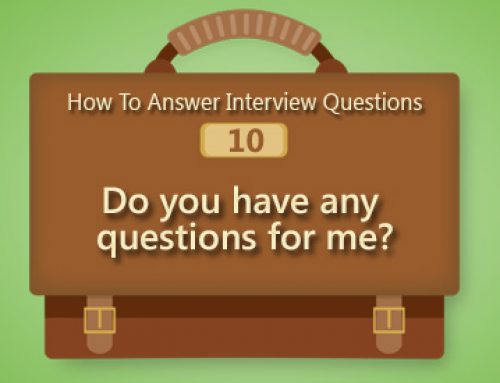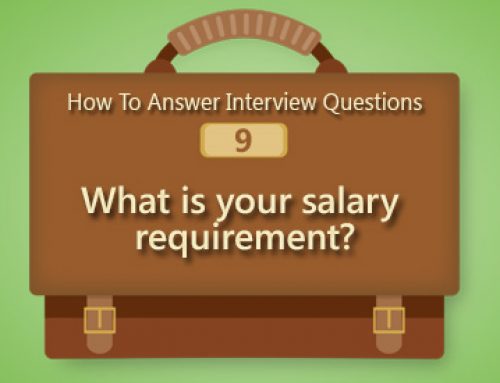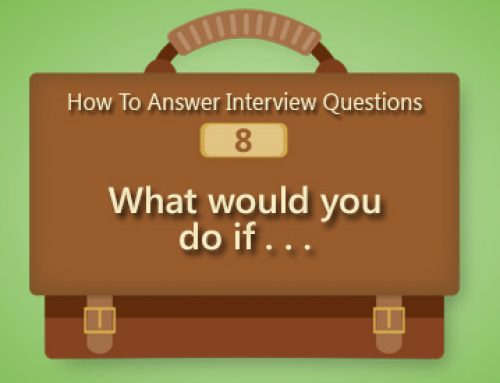1. “Tell me about yourself”
Good Interview Answers for this Popular Question
Here’s the interviewer’s side of what they want to hear (and don’t want to hear) in response to this question.
Alternate versions of this question include:
- “What experience do you have that qualifies you for this position?”
- “What would you bring that separates you from other candidates?”
- “What makes you a unique fit for our needs?”
- “What are the most important reasons that we should hire you?”
Your answer should be:
- two minutes or less
- a high level summary
- key background info on you that’s relevant to this position
- including a few key characteristics/skills/traits
- compelling example/accomplishment/award as evidence if possible
- ideally, memorable!
Your answer should not be:
- your entire life history
- too long
- all of your resume
- too personal
- irrelevant parts of your background for this opportunity
Don’t assume they’ve read or even remember your resume. Summarize your experiences, education, skills, those things that make you particularly and ideally uniquely qualified to meet their needs as you understand them at the moment.
To answer this question as the interviewer would like to hear it, ask yourself what are the 3-5 key points you want them to remember about you in relation to this opportunity.
Here’s How to Create Your Answer:
1. You could either start with something compelling or or some foundational statement of how you position yourself. You might also mention your education degree if relevant and perhaps your experience. (If you’re an older worker, you might not claim all your years of experience, you could say – with more than x years of experience). If possible include how your prior organizations have benefited from your contributions.
2. You could mention your expertise – given what the posting for the position has said, what skill or skill set is likely most important to them. (This might be a knowledge-based skill.)
3. “One of my strengths is . . . ” What additional strength do you bring? Again this should be relevant to the posting or what you know is an important factor for success in the position that you bring.
4. If you’ve covered your education/experience/ in the first part, you could add in your accomplishment or a memorable relevant factor in your background here. This is further evidence of what you bring. Or you could add in another relevant key skill or personality trait particularly if you’re quoting what a boss or your coworkers say about you.
5. If you haven’t already covered it, make sure you include something about your skills in the interpersonal realm in working with other people, or if you’ve already covered that or it’s not so relevant for this position, some other relevant personal characteristic.
Ideally, in talking about yourself you would also have found a way to demonstrate your desire/interest in doing this kind of work that they have open. Depending on your circumstance you could at the beginning or the end mention what you are currently doing and/or what you are seeking.
You may have noticed that this answer is also useful as an “elevator speech” or brief intro when you are networking. The difference is that you want to make sure that what you say in reference to a particular opportunity in an interview is relevant to your interviewer’s needs and interests.
The key is to focus on what you bring them that is relevant to what they need and care about.
These five suggested areas aren’t a rigid structure. Organize in whatever way is applicable and allows you to put your most memorable, best and most relevant summary forward.
Here are some specific examples (XXX removes confidential information)
Example #1
I’ve been a XXX prosecutor for over seven years – the first two of which I prosecuted XXX cases exclusively. I was the go-to person in XXX District on XXX matters and was an instructor at XXX two years in a row.
I have a strong writing background. In law school I was on Law Review and my article on XXX was selected for publication. As a litigation associate with two big firms, writing was practically all I did my first 6 years in practice. The Partner called me “The Machine” because I churned out excellent written work product in relatively short time.
It’s important for me to do work that makes a difference. I’d like to continue doing meaningful work by using my strengths and talents to contribute to your XXX in the XXX area. I’m also looking forward to returning to Washington D.C. as I’ve lived there twice, when I interned at the White House and the summer I interned for Congressman XXX.
Example #2
I am about four years into my work career. I started out in an insurance company in XXX, as an intern and quickly moved up there. I took a Marketing Assistant position as a full-time opportunity and then was promoted to a bigger role. I was in the Marketing team there, so it was Public Relations Account Executive and Media Planner/Buyer role.
The Media Planner/Buyer portion of the role was actually a position that was created for me after the employer had seen my strengths and what I had been working on. It was a great opportunity, a wonderful company to work for. It was a growing company, so I had a chance to work on a lot of different types of marketing projects, including public relation strategy.
I handled all of the media planning and buying and worked very closely with the marketing management and executive level, executive team there.
I made the decision to move to XXX at the end of XXX. I spent almost two years there and wanted to explore career opportunities in XXX and the time was right, so I made that move and joined a media agency. It was a smaller independent media agency and spent about a year and seven months there doing media planning and buying and that brings me to where I am right now.
YOUR TURN NOW:
Prepare a brief, but concise, statement that would take two minutes or less to say as a response to this question. (This is the oral version that is similar to but not the same as a summary you might use on a resume.)






